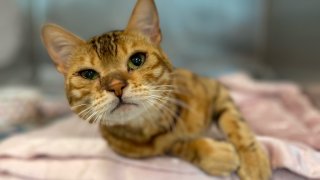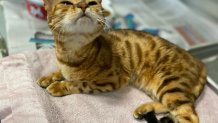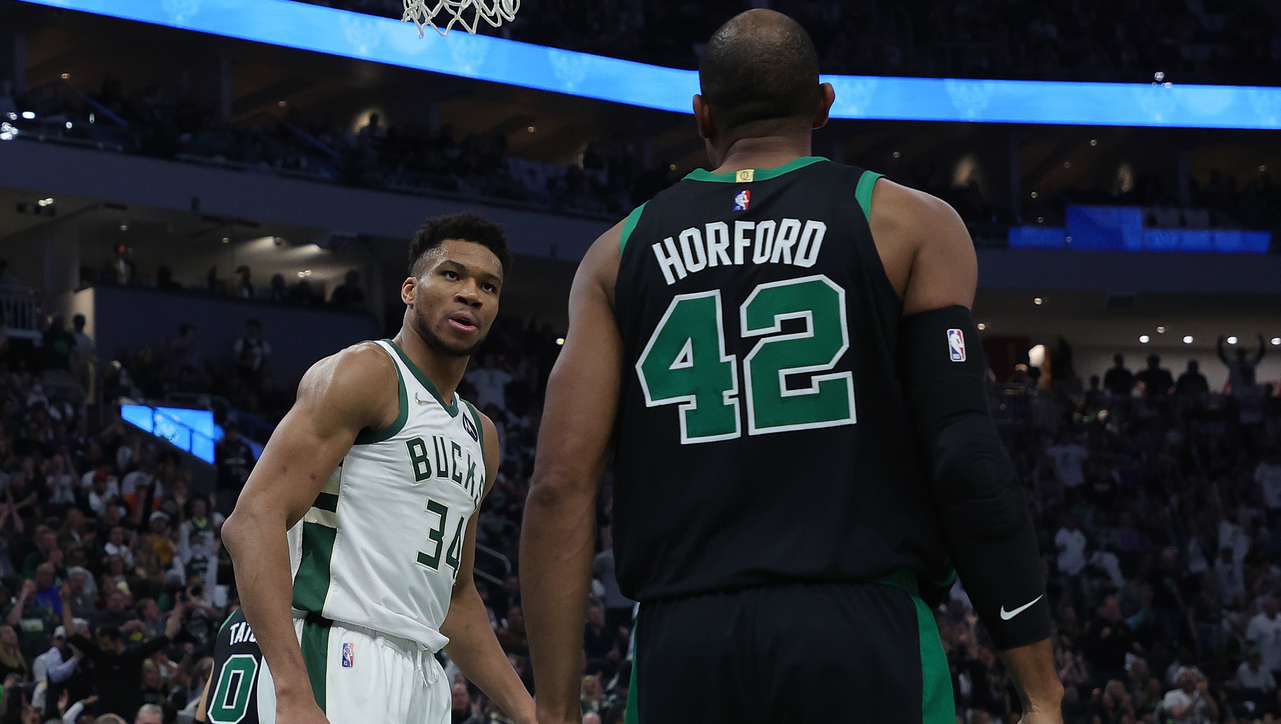
An exotic Bengal cat found injured outside a Worcester, Massachusetts, home is expected to undergo surgery this week and will need a new home once she's fully recovered.
The MSPCA-Angell Shelter in Boston said a good Samaritan brought the cat to their shelter two weeks ago. Shelter staff determined the cat is likely less than a year old.
WATCH ANYTIME FOR FREE
Stream NBC10 Boston news for free, 24/7, wherever you are. |
The cat was unable to walk and was in shock after her long night, so staff put her on medication to ease her pain while they worked to figure out what was wrong.
“Our staff knew immediately the cat had some kind of problem with her hind legs,” said MSPCA-Angell Shelter Operations Coordinator Corinne Bourgoin. “They later discovered that she has a pelvic fracture that also created a destabilization of the hip joint and will require surgery.”
Get updates on what's happening in Boston to your inbox. Sign up for our News Headlines newsletter.
The cat could undergo femoral head ostectomy surgery as soon as Tuesday. The surgery will remove the head and neck of the femur to create a false joint that will allow her to eventually move pain-free.
The surgery is expected to cost up to $4,500, and anyone who wants to make a donation to help offset the cost can do so at mspca.org/Bengal.

After surgery and a suitable recovery period, the Bengal cat will be put up for adoption.
“Bengals are usually very active and need lots of interactive play every day, but it’s hard to know what her personality will be like until she’s healed,” Bourgoin said. “We’re looking for an adopter who has experience with exotic cats that can help her maintain a very low activity level while she fully recovers and take her to follow-up vet appointments.”
Bengal cats are relatively rare in animal shelters, with the MSPCA receiving fewer than 40 across its adoption center network in the last five years. The breed, which originates from the pairing of a domestic cat with an Asian leopard cat, is known for its circles and other markings that resemble those of leopards.
Bengals are usually brown or silver, but this cat has a unique orange and gold coat.
The cat’s arrival comes almost four months after an African serval was found in Lincoln and ultimately re-homed by the MSPCA.




